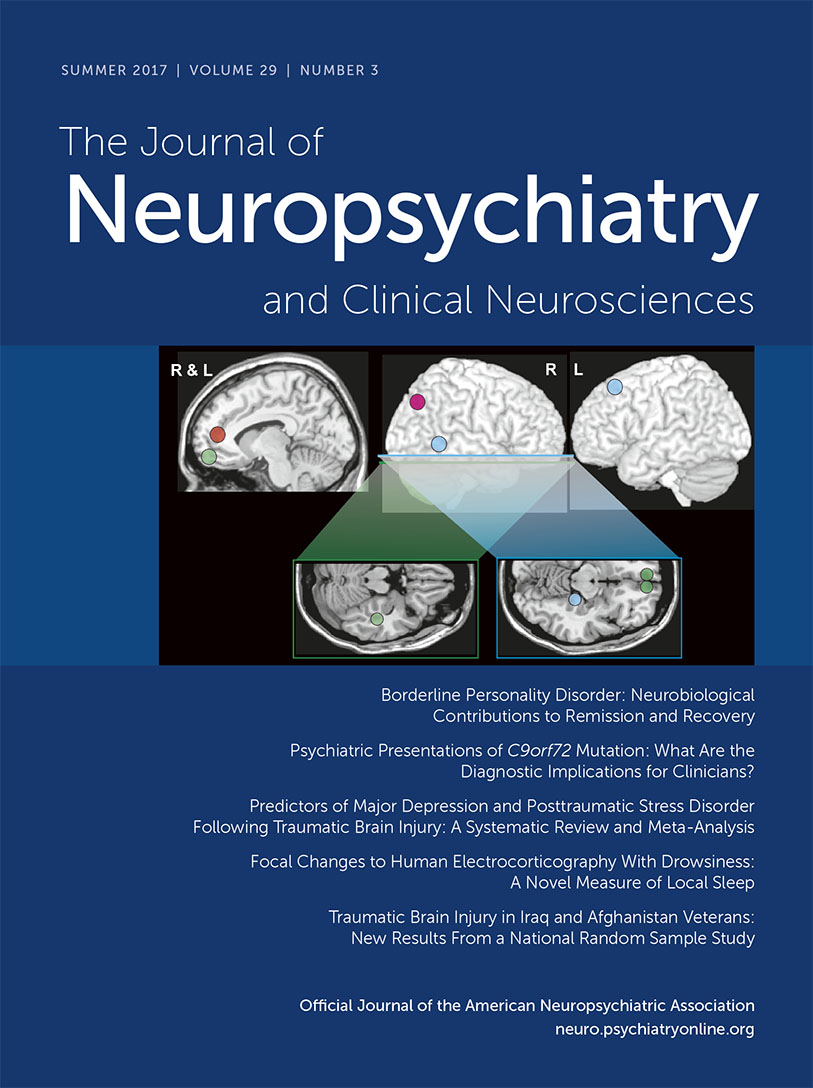Predictors of Major Depression and Posttraumatic Stress Disorder Following Traumatic Brain Injury: A Systematic Review and Meta-Analysis
Abstract
Although major depressive disorder (MDD) and posttraumatic stress disorder (PTSD) are prevalent after traumatic brain injury (TBI), little is known about which patients are at risk for developing them. The authors systematically reviewed the literature on predictors and multivariable models for MDD and PTSD after TBI. The authors included 26 observational studies. MDD was associated with female gender, preinjury depression, postinjury unemployment, and lower brain volume, whereas PTSD was related to shorter posttraumatic amnesia, memory of the traumatic event, and early posttraumatic symptoms. Risk of bias ratings for most studies were acceptable, although studies that developed a multivariable model suffered from methodological shortcomings.



